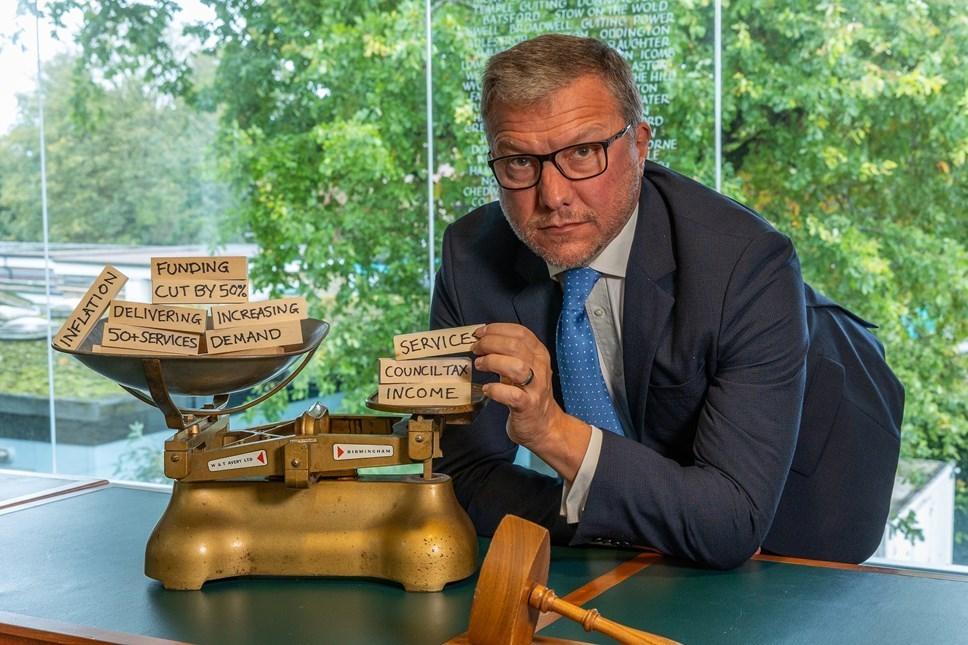
Household bills and parking charges in the Cotswolds are set to rise from April as the District Council approves a 3.3 per cent tax hike in a bid to avert bankruptcy in years to come.
Cotswold District Council leaders say they are not in imminent danger of issuing a section 114 notice which would effectively declare them bankrupt. But finance chiefs warn they are facing a “financial cliff edge” in years to come.
To tackle this, the council has a savings and transformation plan which should close the gap by around £2m this coming financial year. They are looking to make savings of around £1.2m and generate around £770,000 extra revenue by rising parking charges by around 15 per cent, garden waste fees and introducing Sunday charging for car parks.
Cllr Evemy said the council is facing expenditure and income pressures of more than £500,000 and they need to find £1.1m just to cover contract, pay and energy inflation. “This budget will deliver a surplus next year of over half a million pounds. That, together with a forecast surplus of over £300,000 in the following year, will replenish nearly all of the reserves that will be needed to fund this year’s budget.”
The Conservative opposition proposed a budget amendment to scrap the proposed introduction of Sunday charges at the district’s car parks which they claim will be a “major blow” to already struggling Cotswold traders.
“These businesses which add so much to the vibrancy and diversity of our market towns rely on residents and visitors travelling to our town centres and parking,” he said. “Increasing parking fees sends out a hugely negative message of the council’s attitude towards local businesses.
“It will inevitably have an impact on the number of people visiting, causing great damage to the local economy and risking our market towns becoming ghost towns.”
But council leader Joe Harris (LD, St Michael’s) explained the authority is facing a huge financial challenge. “If we want to avoid a bankruptcy further down the line, then we have to take tough decisions because the Conservative Government don’t fund local government properly.”
The amendment was rejected by 23 votes to eight and the budget was subsequently approved by the same difference.




